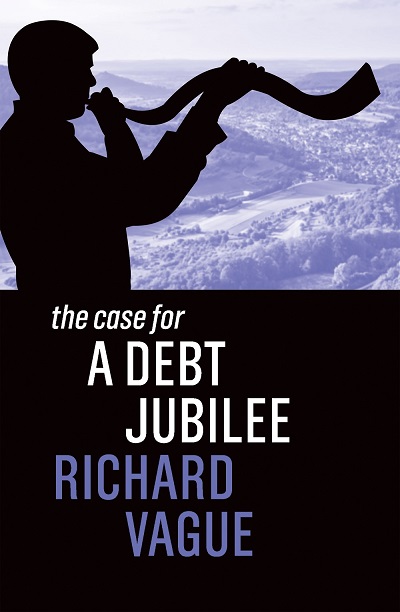At the risk of sounding flippant or blasé, I’ll just say this straightforwardly. I love this book. It’s the kind of book, on a specific kind of topicality, that I’ve been hungry to see for quite some time. At the risk of sounding partisan, the phenomenon that has been clouding works like Richard Vague’s nonfiction book The Case for a Debt Jubilee started in the post-Obama years, was carried onward throughout the duration of the tumultuous 2016 American election, and crystallized during the rifts and divides that defined the legacy of the Trump Administration from 2016 to (arguably) its effects on the events befalling January 2021.
ABOUT THE AUTHOR: https://www.richardvague.com/
Flaming rhetoric, not facts, not the how we get there factors, have reigned supreme. It’s gotten people elected, it’s haphazardly driven policy, and it’s becoming the goalpost (sadly) that politicians left, right, and center have been forced to trek to. Mercifully, not Vague. In his simultaneous roles as Secretary of Banking and Securities for the Commonwealth of Pennsylvania, and powerful new author, Vague makes a series of bold and no-nonsense claims about navigating economic policy in a post-pandemic, post-modernist American framework. While rendering the text the ability to be viscerally affecting, he never comes from a place of distinctive emotionality himself.
The emotionality of Case for a Debt Jubilee lies in the profound implications the policies Vague promotes entail. What he’s talking about, especially to the ears of a traditionalist, equate to something of a (minor, debatably) paradigm shift. But Vague understands the responsibility he holds as someone pushing these kinds of ideas. He never settles for a platform of dismissing critics to said ideas. If anything, the book is geared towards the theoretical critic – it debates both sides of its issues, with Vague coming out on top because of the logic and the methodology he applies objectively to the articulations of the issues.
“Debt amnesty was easiest in the earliest civilizations, when lenders were primarily the palace and the temple, since the government was simply forgiving debt it had extended to its citizens. Many of these ancient debts were not loans so much as arrears: an accrual of tax or other obligations that citizens could not pay. But over time, large merchants and landowners became significant lenders, too, and acts of debt amnesty also required that these lenders forgive debts. If by his own debt amnesty proclamation the king forgave a loan his office had extended, it was a loss borne by that king.
If by proclamation the king forced other lenders to forgive debts, it was a loss borne by those lenders,” Vague writes. He goes on to say, “The ancient Israelites took debt relief an important step further: they removed it from the realm of a king’s whims and encoded it into their laws, making it recur the year after every seven cycles of seven years. Debt relief changed from an ad hoc to a structural aspect of the economy. The Israelites called it Jubilee, after the ram’s horn, or yobel…that was sounded for the joyous proclamation of this freedom from the burden of debt.”
AMAZON: https://www.amazon.com/Case-Debt-Jubilee-Richard-Vague/dp/1509548734
In someone like Richard Vague, shining a light on much-needed revisions to standard polic(ies), we have hope. We have someone who we can trust. Case for a Debt Jubilee may not win over everyone. But no one can deny the succinctness and fact-based cruxes of its narrative. It’s a welcome relief and return to form, after the well-intentioned misfires and fiascos of the past four years.
Cyrus Rhodes



























